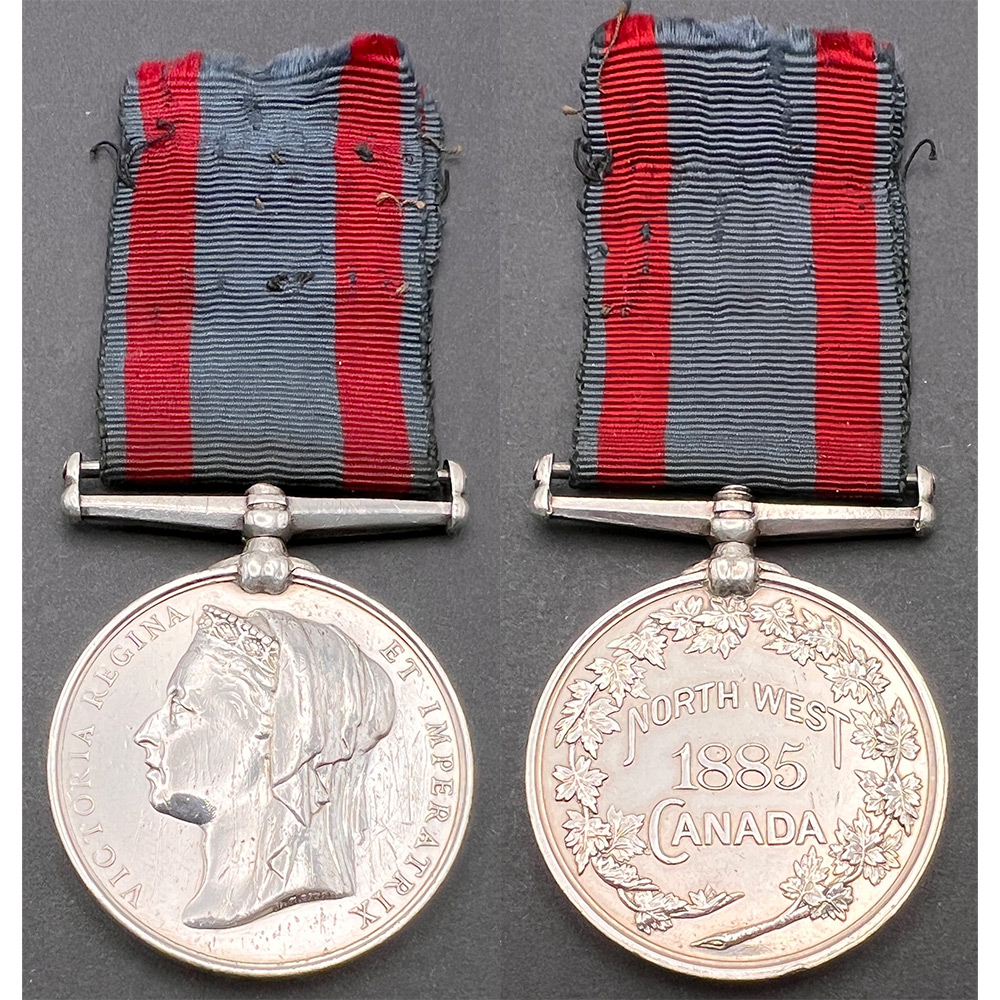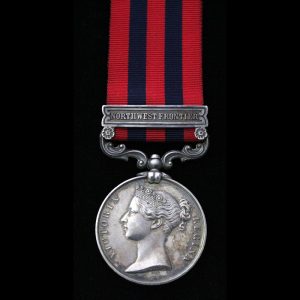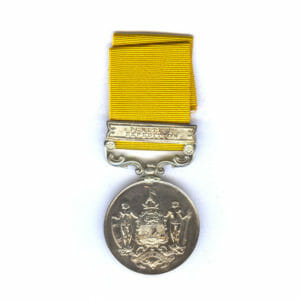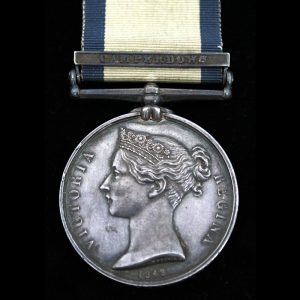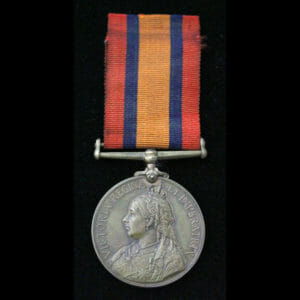Description
North West Canada Medal 1885, unnamed as issued. On an old piece of silk ribbon. Only about 5650 medals were issued for those who fought in the North West or Riel Rebellion of 1885, led by Louis Riel.
The Riel Rebellion of 1885, also known as the North-West Rebellion or the Second Riel Rebellion, was a significant uprising in the Canadian prairies involving the Métis people, led by Louis Riel. It took place primarily in what is now the province of Saskatchewan and parts of Alberta, then known as the North-West Territories.
The rebellion was a culmination of tensions and grievances that had been building for several years. The Métis, who were of mixed First Nations and European heritage, felt marginalized and ignored by the Canadian government. They faced issues such as land disputes, economic challenges, and cultural suppression. Many Métis, led by Louis Riel, believed that their rights were being violated and that the government was not fulfilling its promises to them.
The immediate cause of the rebellion was the Canadian government’s mishandling of the Métis’ concerns and the encroachment of settlers on Métis lands. In 1884, the Canadian government sent surveyors to the region without consulting the Métis, which further escalated tensions. The Métis, under the leadership of Riel and Gabriel Dumont, took up arms and established a provisional government in Batoche, Saskatchewan.
The rebellion began on March 26, 1885, with the Métis scoring initial victories against the Canadian forces. However, they were ultimately outnumbered and outgunned by the better-equipped Canadian militia. The government responded by dispatching military forces, including the North-West Mounted Police and later the Canadian Army, to suppress the rebellion. After a series of skirmishes and battles, the decisive engagement occurred at Batoche in May 1885. The Canadian forces, under the command of Major-General Frederick Middleton, defeated the Métis and captured Riel.
With the rebellion effectively quelled, Riel was subsequently put on trial for treason, found guilty, and executed on November 16, 1885.
The repercussions of the Riel Rebellion were significant. It deepened the divide between French- and English-speaking Canadians and brought attention to the mistreatment of Indigenous and Métis peoples by the Canadian government. It also highlighted the need for land and treaty rights for Indigenous communities and influenced future discussions on Indigenous rights in Canada.
In recognition of the historical significance of the Riel Rebellion, Louis Riel is often regarded as a martyr and a key figure in Métis and Canadian history. Today, he is considered a founding father of Manitoba and an important symbol of Métis resistance and identity.
